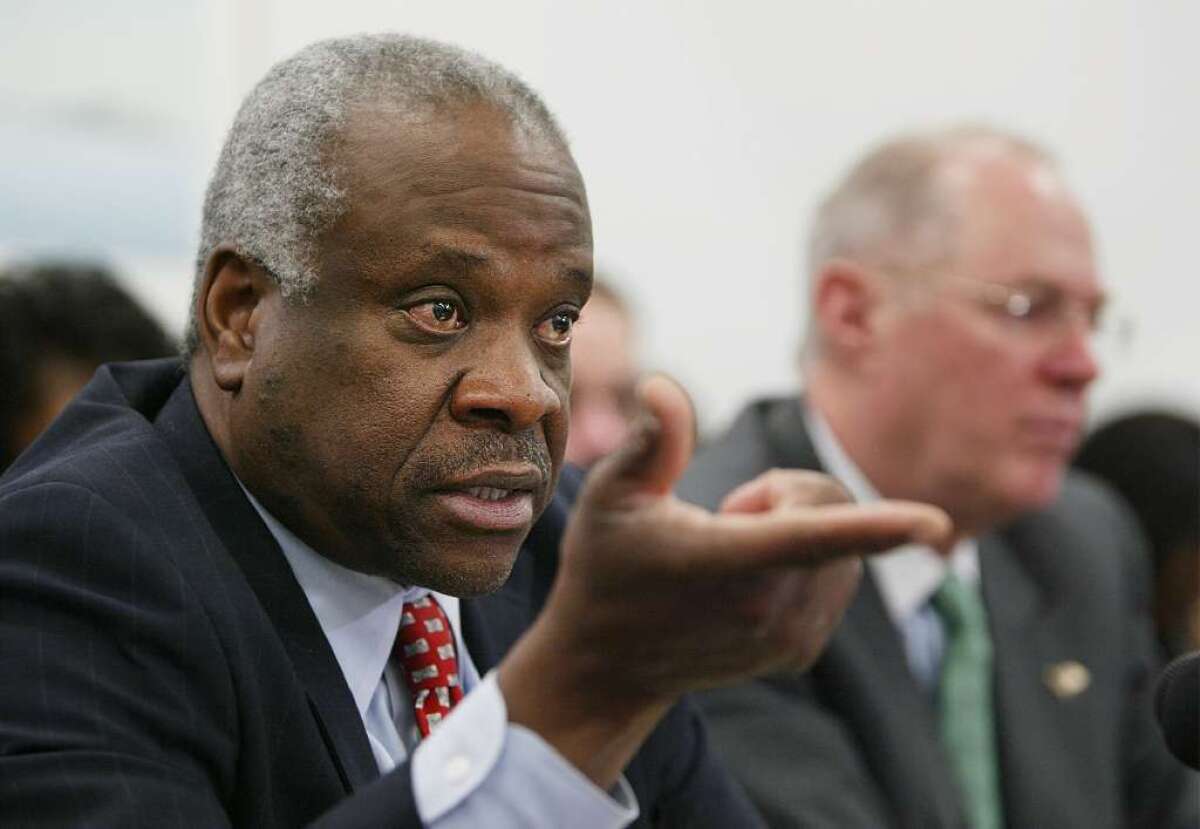Opinion: In prayer case, Supreme Court Justice Clarence Thomas proves critics wrong

Justice Clarence Thomas believes states aren’t covered by a ban on the ‘establishment’ of religion
Two of the most common misperceptions about Supreme Court Justice Clarence Thomas are that he’s not a distinctive voice on the court and that he’s a jurisprudential clone of Justice Antonin Scalia. Monday’s decision on prayer at public meetings demonstrated anew how fatuous those notions are.
True, Thomas joined Scalia (and three other justices) in concluding that the town of Greece, N.Y., did not violate the 1st Amendment’s ban on an “establishment” of religion by beginning its meeting with prayers from “guest chaplains” who were overwhelmingly Christian and who often prayed in Jesus’ name.
Thomas also joined with Scalia in opting out of a section of Justice Anthony Kennedy’s majority opinion in which Kennedy said that the town’s prayer practices didn’t amount to coercion of non-Christens. (Thomas and Scalia agreed that there was no coercion, but wrote separately to say that coercion consists only of legal penalties for religious dissenters, not “subtle coercive pressures.”)
But Thomas couldn’t get Scalia’s signature for another part of his dissenting opinion, in which Thomas – not for the first time – disputes the notion that the 1st Amendment’s ban on the “establishment” of religion even applies to state and local governments.
The 1st Amendment says: “Congress shall make no law respecting an establishment of religion, or prohibiting the free exercise thereof…” So how is it that the amendment covers actions by states and localities?
In the 20th century, the Supreme Court decided that the 14th Amendment – the post-Civil War enactment that requires states to guarantees due process of law -- “incorporated” some of the protections of the Bill of Rights which originally protected only against deprivation by the federal government.
It’s easy to see how you apply the 1st Amendment’s protection of the “free exercise” of religion to the states. But incorporating the so-called Establishment Clause is trickier. It says that Congress “shall make no law respecting an establishment of religion.”
That arguably goes beyond prohibiting a federal establishment of religion; it also can be read as preventing Congress from interfering with decisions by the states about whether they would have established churches or policies that preferred one denomination over another. (Thomas has noted that at the founding of the United States, “at least six states had established religions.”)
In any event, Thomas has argued, the Establishment Clause “is best understood as a federalism provision – it protects state establishments from federal interference but does not protect any individual right.” Therefore it can’t be incorporated against the states.
Thomas isn’t the only one who reads the Establishment Clause this way. Last year legislators in North Carolina proposed a bill that would have laid the groundwork for the state declaring its own religion. (Any guesses what it would be?)
It didn’t succeed, and neither will Thomas’ effort to have his colleagues reconsider the incorporation of the Establishment Clause. But on this issue, as on others, he’s nobody’s clone.
More to Read
A cure for the common opinion
Get thought-provoking perspectives with our weekly newsletter.
You may occasionally receive promotional content from the Los Angeles Times.






